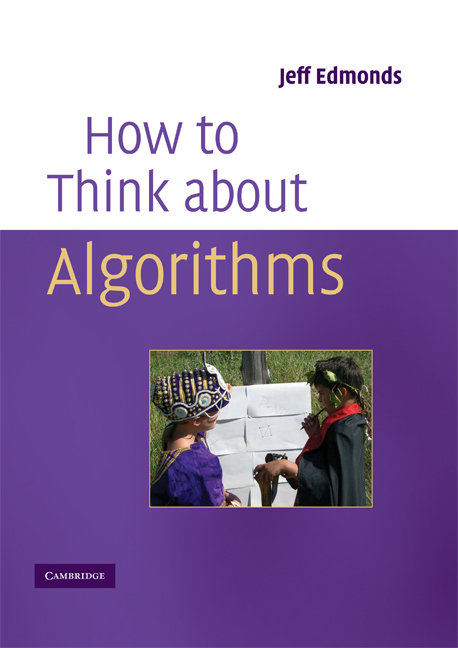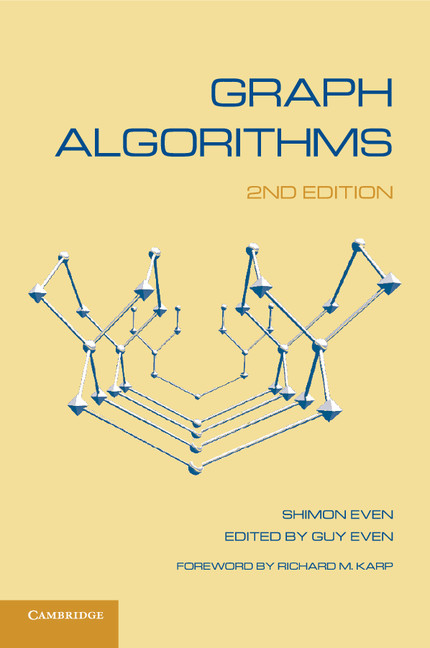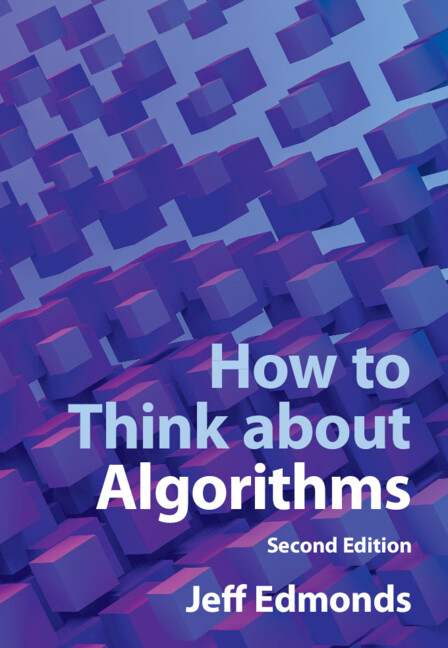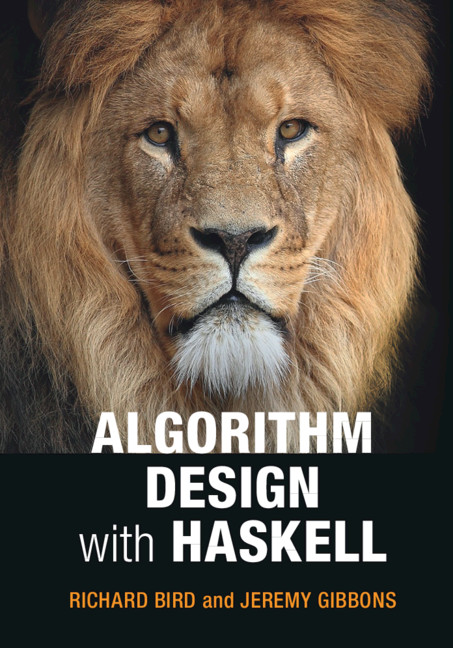How to Think About Algorithms
There are many algorithm texts that provide lots of well-polished code and proofs of correctness. This book is not one of them. Instead, this book presents insights, notations, and analogies to help the novice describe and think about algorithms like an expert. By looking at both the big picture and easy step-by-step methods for developing algorithms, the author helps students avoid the common pitfalls. He stresses paradigms such as loop invariants and recursion to unify a huge range of algorithms into a few meta-algorithms. Part of the goal is to teach the students to think abstractly. Without getting bogged with formal proofs, the book fosters a deeper understanding of how and why each algorithm works. These insights are presented in a slow and clear manner accessible to second- or third-year students of computer science, preparing them to find their own innovative ways to solve problems.
- Includes lots of exercises, with selected solutions in the text; PowerPoint slides for instructors available from the web
- Presents the big picture and step-by-step methods for developing algorithms, while avoiding common pitfalls
- Appendices give background on big-O notation, logic, asymptotics, and other mathematical tools
Reviews & endorsements
"Edmonds intends this text for use in advanced undergraduate courses in algorithms. The author encourages abstract thinking through exercises informed by real-world scenarios to help students access and master algorithm concepts, including proofs of correctness, with greater ease. Twenty-one chapters under the main themes of iterative algorithms and loop invariants (section one), recursion (section two), and optimization problems (section three) cover topics that include: measures of progress and loop invariants, abstract data types, binary search, iterative sorting algorithms, abstractions and theory, recursion on trees, recursive images, graph search algorithms, network flows and linear programming, greedy algorithms, and dynamic programming algorithms. Seven additional chapters in the appendix consider specific algorithms such as those measuring time complexity and asymptomatic growth."
Book News, Inc.
"Reading this is like sitting at the feet of the master: it leads an apprentice from knowing how to program to understanding deep principles of algorithms. Presentation [is] informed and friendly."
Harold Thimbleby, Times Higher Education
"I believe this book could be considered a must-read for every teacher of algorithms. Even if he reads things he already knows, he will be able to view them from different angles and in the process get some very useful ideas on how to explain algorithms in class. The book would also be invaluable to researchers who wish to gain a deeper understanding on how algorithms work, and to undergraduate students who wish to develop their algorithmic thought... it has the potential to be considered a classic."
Kyriakos N. Sgarbas for SIGACT News
"All in all this is a great book to learn how to design and create new algorithms. The author teaches you how to think about algorithms step by step, building the necessary knowledge and illustrating the process with common algorithms. This is a good book that the reader will appreciate in the first and subsequent reads, it will make better developers and programmers."
Journal of Fuctional Programming
Product details
August 2008Adobe eBook Reader
9780511410451
0 pages
0kg
156 b/w illus. 24 tables 203 exercises
This ISBN is for an eBook version which is distributed on our behalf by a third party.
Table of Contents
- Part I. Iterative Algorithms and Loop Invariants:
- 1. Measures of progress and loop invariants
- 2. Examples using more of the input loop invariant
- 3. Abstract data types
- 4. Narrowing the search space: binary search
- 5. Iterative sorting algorithms
- 6. Euclid's GCD algorithm
- 7. The loop invariant for lower bounds
- Part II. Recursion:
- 8. Abstractions, techniques, and theory
- 9. Some simple examples of recursive algorithms
- 10. Recursion on trees
- 11. Recursive images
- 12. Parsing with context-free grammars
- Part III. Optimization Problems:
- 13. Definition of optimization problems
- 14. Graph search algorithms
- 15. Network flows and linear programming
- 16. Greedy algorithms
- 17. Recursive backtracking
- 18. Dynamic programming algorithms
- 19. Examples of dynamic programming
- 20. Reductions and NP-completeness
- 21. Randomized algorithms
- Part IV. Appendix:
- 22. Existential and universal quantifiers
- 23. Time complexity
- 24. Logarithms and exponentials
- 25. Asymptotic growth
- 26. Adding made easy approximations
- 27. Recurrence relations
- 28. A formal proof of correctness
- Part V. Exercise Solutions.







